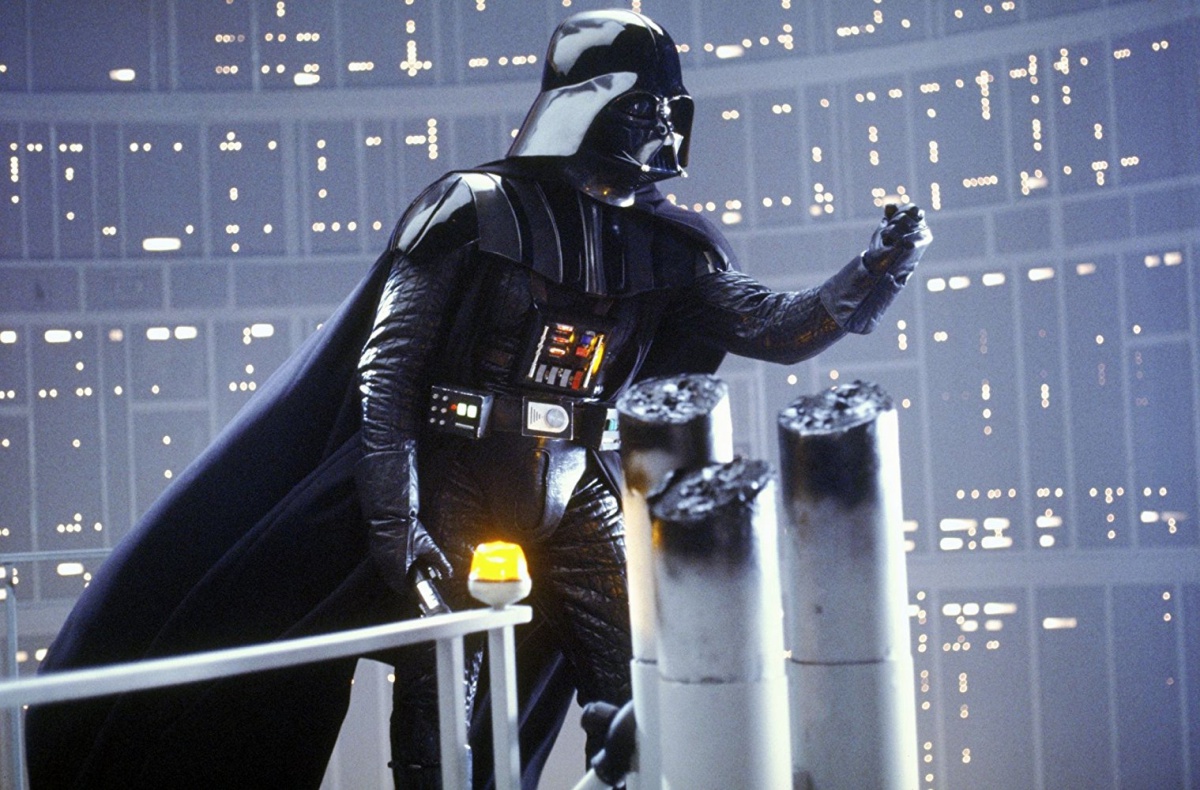The Empire Strikes Back Changed Star Wars & Evil Fatherhood Forever


Yesterday was the 38th anniversary of The Empire Strikes Back (better late than never, right?), the movie that most fans hold up as one of the best, if not the best Star Wars film. Fun fact: Empire Strikes Back was the first film I ever saw in the Star Wars franchise. I distinctly remember the “I am your father” scene and thinking, “He’s gonna be so sad.”
Now, I knew that Vader was Luke’s father because I was born 12 years after this movie came out, and it had fully invaded pop culture by then. It is almost impossible to not know that, plus when you rewatch the movie now, the foreshadowing is pretty obvious.
However, the thing that I think about when I rewatch Empire as an adult is the traumatic experience within that reveal and how it affected Luke and Leia. Or more so … didn’t affect them.
Luke becoming a Jedi, in fulfillment of his father’s legacy, and trying to live up to what it means to be a Jedi is something that gives him strength. Yet, the same man that he idolized in his heart and mind turns out to be a mass murderer who mutilates him. Rewatching Empire and Return of the Jedi, a part of me sees Luke as any kid growing up with a father who goes from loving to abusive over time. The is something childlike and optimistic about the way that Luke pours all of his confidence into the fact that he can save his father through their mutual familial love—a love that has no foundation but biology.
The original Star Wars trilogy ends with the optimism that Luke saved his father and the galaxy. It’s a hopeful, optimistic end, but it doesn’t give us any insight into how he will move forward, being both the savior of the galaxy and the son of its greatest tormentor.
It isn’t until The Last Jedi that we get any on-screen look at the personal damage Darth Vader did to his son.
It is the fear of being responsible for someone like Vader that makes Luke consider killing his own nephew. One of the biggest debates from TLJ was that scene, because it seemed so out of character for Luke. For me, one of the reasons it did make sense is because, while he did save and love his father in a way, he was deeply affected by that relationship. That fear of Vader is still inside of him, and it was so powerful he considering doing something terrible.
It’s the same type of fear that made Anakin turn into Darth Vader in the first place.
While we do all this talking about Vader/Luke’s relationship, as usual, Leia gets left out of it. Leia’s feelings about being the daughter of Darth Vader literally do not exist in the on-screen canon. The reveal in Return, in which Leia finds out that Vader is her father and Luke is her brother, basically has her respond, “Yeah … the script told me that.”
This is the same man who destroyed her entire planet, including her parents. Who tortured her. She’s spent her entire life fighting the forces of the Empire and Vader, and when it’s revealed that he’s her dad? Meh.
Even in this new trilogy, Leia’s son is following in her father’s footsteps, but we can’t make the time to establish a real bond between them. Han and Kylo get a scene, Luke and Kylo get a scene, but Leia, his mother, the reason Vader/Skywalker blood runs through his sadboy veins, gets forlorn glances. Now, with the death of Carrie Fisher, we may never get an idea of what Leia felt about her legacy in all of this.
The reveal of Darth Vader as the father of Luke and Leia is one of the biggest twists* in sci-fi canon. Sadly, the movie series never did anything with it to examine what it’s like to grow up in the shadow of a monstrous legacy. The only real place to see that is in the now non-canon Star Wars expanded universe.
In 1993, in the expanded universe novel The Truce and Bakura, Leia gets to meet her biological father, Anakin Skywalker, in ghost form. He tries to apologize to Leia, saying, “I am proud of your strengths. I do not ask for absolution. Only your forgiveness.” Later on, Leia says, “Maybe Vader had died heroically, but ten minutes of contrition did not make up for years of atrocities.”
For all the flaws I feel exist with the Gamora/Thanos story in Infinity War, at the very least, the Marvel movies do illustrate the pain that is caused by abusive parents.
It’s not enough to say that Vader changed at the last minute; there are emotional and psychological consequences to having that much darkness as a part of your legacy. Children of serial killers talk about how they wonder if they have a right to happiness, and how they have to work through emotional steps to heal. Luke and Leia don’t get that, and it’s one of the biggest missteps of the reveal. It is epic and galaxy-shattering, but the fallout is over so quickly that it’s hard to understand what made it so impactful in the first place.
Thank you for coming to my TED talk. What are your favorite parts of Empire and the Star Wars universe? What are some story holes that you irrationally dwell on?
*We all know that George didn’t plan this out from the beginning, so it’s less of a “twist” than it is the result of “what would be the craziest thing to happen here?”
(image: Lucasfilm)
Want more stories like this? Become a subscriber and support the site!
—The Mary Sue has a strict comment policy that forbids, but is not limited to, personal insults toward anyone, hate speech, and trolling.—
Have a tip we should know? [email protected]
